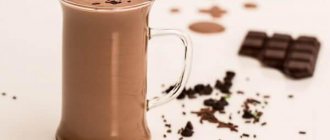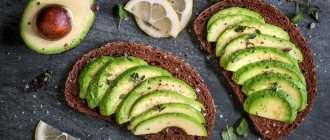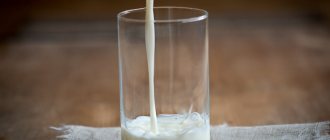Among women who have experienced the joy of motherhood, a very popular question is whether it is possible to drink coffee while breastfeeding. Many are accustomed to starting the day with a cup of aromatic drink, because it helps to wake up and invigorate, which is very important for a young mother. However, coffee is most often not included in the list of permitted products for proper nutrition, the principles of which are recommended for a woman to adhere to during lactation.
Among women who have experienced the joy of motherhood, a very popular question is whether it is possible to drink coffee while breastfeeding.
Is it possible to drink coffee while breastfeeding?
This invigorating drink contains many useful vitamins and microelements: tannins, coffee oil, amino acids, vitamins PP, B1, B2. Coffee has an antiseptic effect due to the phenolic compounds in its composition. In addition, the product contains organic acids (chlorogenic, citric, caffeic, malic) and fiber, which help normalize the digestion process.
However, the main component that gives a person vigor, concentration and good mood is caffeine. Women try to avoid coffee while breastfeeding precisely because of this. More than anything else, the mother is afraid of harming the baby’s health and fears that the substance will negatively affect the state of the child’s nervous system. One of the main answers to the question why nursing mothers should not drink coffee is the opinion that the baby will become nervous, anxious, sleep poorly and be delayed in development.
Drinking coffee while breastfeeding is indeed not recommended, but for a completely different reason. The fact is that the child’s body is not able to absorb and remove caffeine from the body. According to research results, the substance is completely eliminated from the body of an adult in 5-10 hours, while this will not happen in a child even in a week. In addition, caffeine accumulates in the body, which can cause health problems. However, for this effect you need to drink the drink regularly, and in large quantities.
Caffeine is the main reason why coffee and breastfeeding are incompatible, there is no other reason for concern. It is worth noting that this substance is contained not only in an invigorating drink, but also in all types of chocolate, green and black tea, cocoa, but this fact is not a reason to avoid these products during breastfeeding.

A few decades ago, the answer to the question of whether nursing mothers can drink coffee was categorically negative. Today, doctors adhere to a softer point of view: coffee during lactation is not a prohibited drink if it is not abused. It is worth considering that it, like any other new product, must be introduced carefully, as it can provoke allergies in the baby.
Indications
There are 16 subtypes of B vitamins. And each type is necessary to perform one or another function in the human body.
The most famous of them:
- Vitamin B1 – also called thiamine:
- helps normalize metabolism;
restores peripheral nerve endings;
- regulating the functioning of the liver and heart.
- Vitamin B2 or riboflavin:
- stabilizes metabolism;
has a beneficial effect on the functioning of the respiratory system;
- helps improve vision.
- Vitamin B3 or nicotinic acid improves metabolism in nerve tissue cells.
During breastfeeding, nicotinic acid increases blood circulation and promotes the delivery of vitamins and microelements necessary for the formation of milk to the mammary gland. The vitamin preparation is available in the form of an injection solution for intramuscular administration and tablets. Vit. PP helps reduce blood cholesterol levels. With the participation of niacin, lipids and carbohydrates are converted into energy. That is why this component plays an important role in the normal functioning of the cardiovascular system. - Vitamin B6 or pyridoxine:
- strengthens the immune system;
restores normal functioning of the nervous system.
- Vitamin B9. It is also called folic acid, folacin or vitamin Bc. It is prescribed to pregnant women for the development of the baby’s brain and nervous system while it is in the womb. And nursing women need the vitamin as a source of energy for an irritated nervous system.
The baby needs vitamin for the normal development of all organs. The element affects the mental development of the baby. Takes part in the regulation of the immune system and hematopoiesis. A deficiency of the element can result in anemia and digestive disorders.With a lack of vitamin B9 in breast milk, newborns may experience developmental delays, including mental retardation or dementia.
- Vitamin B12 or cyanocobalamin has a positive effect on the function of the liver and nervous system and is involved in the restoration of metabolism.
Vitamin B12 is the only nutrient that contains the micronutrient cobalt. The body's supply of this vitamin directly affects the processes of growth and development, the state of the nervous system and the gastrointestinal tract, which is very important for a pregnant woman, especially on the eve of childbirth.
The substance is indispensable for the normal functioning of the central nervous system, which is extremely important for a girl who has experienced such stress as the birth of a child.
The element also takes part in enzymatic processes and is necessary for the synthesis of proteins, nucleic acids, and DNA. This is extremely important for the restoration of the female body after pregnancy and childbirth. The vitamin provides the nervous system with ATP molecules and is involved in the transmission of nerve impulses.
The element is extremely necessary for women to restore beauty: it helps improve the quality of hair, nails and skin, which can be severely damaged both during pregnancy and during breastfeeding.
The element also has a beneficial effect on the functioning of the nervous system. Another substance is necessary for the baby, as it strengthens the skeleton of the newborn.
It is useful for a child because it has a beneficial effect on the development of the spinal cord and brain.
Lack of vitamin B6 leads to decreased lactation. The element participates in the form of enzyme systems in hematopoiesis. For a newborn baby, vitamin deficiency is dangerous due to impaired development of the spinal cord and brain.
B vitamins are needed to maintain normal functioning of the nervous system . A woman who has recently given birth finds herself in stressful situations every day: postpartum depression, chronic lack of sleep and other negative aspects. If a girl feels tired and irritable, then the reason may be a lack of B vitamins.
For an infant, vitamins are useful for the normal complex development of all internal organs, the formation and strengthening of the skeleton and nervous system.
Types of coffee: which one is suitable for a nursing mother
Modern drinks are very diverse: natural or instant coffee, coffee with milk or cream, green coffee, Americano, cappuccino, latte, decaffeinated coffee, etc. In order for a nursing mother to choose a coffee drink to her liking, you need to familiarize yourself with the main species and their effect on the body and lactation. So:
- Instant coffee. A common misconception is that it contains the least amount of caffeine. The product is made from the cheapest Robusta variety, which is rich in it. Granulated and freeze-dried products may contain various harmful impurities, so women on breastfeeding should refrain from drinking this drink.
- Decaf coffee, which, despite the name, contains this substance, but in small quantities. In addition, its reduced content is achieved through numerous chemical reactions, which does not go unnoticed and affects the quality of the product. This drink is not allowed for women during lactation, as it can cause side effects such as allergies, stomach upset and increased cholesterol levels.
- Green coffee. A newfangled drink used by young mothers to lose weight and regain their figure after childbirth. A drink with ginger is considered especially effective in the fight against excess weight. Feeding a child with breast milk is a contraindication to weight loss, since during this period serious hormonal changes occur in the woman’s body. This is a new product that has recently appeared on the market, its effect on the body has not been fully studied, and experiments on health and breastfeeding are incompatible things, so it is better to postpone losing weight with the drink until the end of lactation.
- Freshly brewed natural coffee. This is the safest type of drink that you can drink while breastfeeding if you absolutely cannot do without it. The officially approved option for a nursing mother is a cup of coffee with milk, such as a latte or cappuccino. If you don’t have a machine at home to make a drink, you can do without it. It is recommended to grind natural coffee beans immediately before preparing the drink, and simply pour boiling water over the resulting powder, let it brew and add warm or hot milk, which will reduce the concentration of coffee and soften its effect on the body. It is permissible to drink no more than 1 cup per day, or better yet, once every 3-4 days.

This invigorating drink contains many useful vitamins and microelements: tannins, coffee oil, amino acids, vitamins PP, B1, B2.
Sports nutrition and lactation.
Sports nutrition and lactation.
For many mothers, the combination of the words “sports nutrition” and “lactation” is scary and alarming.
Like most ordinary people, for them sports nutrition is a suspicious potion from which muscles instantly grow by leaps and bounds and, in general, it is accessible and necessary only to those who regularly engage in fitness. And, of course, what can we say about taking sports nutrition during such a process as breastfeeding. Using my personal example, I continue to dispel existing stereotypes and doubts. I have already talked about the fact that after childbirth and during breastfeeding (that is, to this day), sports nutrition products are actively used in my diet as part of the review of specific supplements. I propose to summarize and once again talk about what a nursing mother can take if she wants not only to quickly get her body in shape after childbirth, but also to simply feel healthy, active and energetic. Protein.
Let's start with the fact that protein is just protein.
That's it!) The same protein that is found in common everyday foods (meat, poultry, eggs, cottage cheese, etc.) and (Oh, God!) in dry formula for feeding babies and children (pay attention to their composition, you will definitely find the words “whey protein”, “whey protein concentrates”, “casein”). Protein during lactation is an excellent opportunity: - to get enough protein if for some reason you can’t do it from regular food. - organize a snack for yourself when there is absolutely no time to sit down and eat quietly (and with a small child this happens regularly) - use it as an alternative to sweets or in preparing PP-baking. - speed up both the process of reducing the percentage of subcutaneous fat and the return of muscles lost during pregnancy, but subject to regular and adequately organized training. My pick
: Quest Protein from Quest Nutrition.
Casein.
A type of protein that not only solves the problems inherent in protein (see above), but also, due to its slow rate of absorption, increased saturation properties and thick consistency, relieves hunger for a long time and can be an excellent option for an extreme meal, literally just before departure. sleep (no more need to circle the refrigerator with a growling stomach when it’s already midnight).
My pick
: Select by Pescience.
BCAA.
This abbreviation actually hides three amino acids (figuratively speaking, the building blocks of which protein is made - the basis of our body and indeed all living things) - leucine, isoleucine, valine.
By taking BCAA during training, you will increase performance and endurance, speed up recovery after exercise, and help your body preserve muscle by suppressing catabolic processes without interfering with getting rid of extra pounds. I prefer to choose BCAA's that also contain electrolytes. They regulate water-salt balance, optimize body hydration and quench thirst well. My choice
: BCAA 8:1:1 from VPLab, Amino IV from Pescience.
Omega-3.
Essential fatty acids with a wide range of beneficial properties, here are just a few of them: - improves the condition of the skin, hair, nails - strengthens the joint system - supports the functioning of the hormonal system (which has suffered so much for the last at least 9 months) - improves the functioning of the nervous system and brain function - increases insulin sensitivity, metabolic rate and lipid metabolism, which means it promotes weight loss.
My choice
: Omega-3 from Natrol* *Optimal ratio of EPA 180 mg and DHA 120 mg of acids from the leaders in their content (anchovy, cod, sardine, mackerel).
Lemon oil has been added to the composition, which effectively eliminates the specific fishy smell. Collagen.
Skin, muscles, bones, joints - at the heart of our connective tissue is this protein, which gives it strength and elasticity.
After pregnancy and childbirth, a rare woman will be able to boast of skin tone and healthy joints. In addition, a lack of collagen leads to the formation of wrinkles, stretch marks and, one of the most pressing women's problems, cellulite. Since many radical cosmetic procedures are prohibited during lactation, the fight against aging can begin now by enriching the body with collagen from the inside. My choice
: Collagen Velvet from Liquid&Liquid* *The composition also contains vitamins A, B, C, E, which, acting synergistically, improve the absorption and action of collagen.
Available in a convenient form in the form of portioned shots. Chondroprotector.
Even several months after giving birth, women often continue to experience echoes of the past pregnancy, a once displaced center of gravity, measured posture and gait, increased vulnerability of the joint system, including against the background of hormonal changes.
When turning to an orthopedic traumatologist, a woman will most likely hear that effective treatment will be possible only after the end of lactation. However, in the fight against joint pain, it is the chondroprotector that can become a priority supplement. Its use in conjunction with the aforementioned collagen is especially effective. My choice
: Glucosamine+Chondroitin+MSM from VPLab. And to make the process of motherhood and feeding even sweeter, and getting rid of extra pounds of lungs and tasty, you can diversify your diet with protein bars, waffles (when choosing these products, I remain faithful to the Quest Nutrition brand), as well as all kinds of calorie-free jams, syrups and natural nuts pastes. No matter what food product we consume, no one can cancel the individual reaction of the body. Therefore, when introducing any of the supplements I have listed into the diet, you must exercise the same caution as when returning to the use of any other products after childbirth, including chocolate, nuts, citrus fruits, etc. In addition, choose products with or without natural and safe flavors and/or dyes, and give preference to reputable brands in stores with an impeccable reputation that guarantee the quality and originality of their products.

Rules for drinking coffee during breastfeeding
As it turned out, a nursing mother can drink coffee, but only natural and freshly brewed coffee. In order to minimize the possible negative consequences of the drink, and for breastfeeding to bring maximum benefits to the baby, you need to follow some rules. So:
- The baby needs to be fed and then drunk with coffee. The maximum concentration of caffeine in the body occurs after 1-2 hours, so the more time passes before feeding, the less caffeine the baby will get.
- Do not abuse the drink: 1 cup per day is the norm. If the body requires an additional portion, you can try to trick it: drink an invigorating drink from the smallest cups to divide the daily dose into several times.
- A possible side effect of coffee is dehydration of the woman and baby. In order to avoid this, you need to take clean drinking water at the rate of 200 ml for each cup you drink.
- Coffee is a product that can remove not only fluid from the body, but also calcium. Therefore, it is necessary to increase the consumption of dairy and fermented milk products.
- When allowing yourself to drink a cup of invigorating drink a day, it is recommended to give up chocolate or cocoa to reduce the intake of caffeine in the body.
What and how much to drink while breastfeeding (video)
Allowed Substitutes
When answering the question whether nursing mothers can drink coffee, one cannot fail to note the permitted drinks that can be a worthy replacement for the aromatic drink. These include:
- Chicory is a natural, caffeine-free drink that has an espresso-like aroma. It contains B vitamins, iron, potassium, carotene, pectin, mineral salts, organic acids and tannins. The drink has a beneficial effect on the digestive and nervous systems and normalizes metabolism.
- Herbal tea made from oregano, mint or lemon balm.
- Dill water helps cope with flatulence. Dill can be replaced with anise or caraway seeds.
Each woman chooses a drink based on her taste, body condition and, of course, the baby’s reaction.

However, if you really want to pamper yourself with a cup of aromatic natural drink, then even doctors allow you to do this 1-2 times a week.











